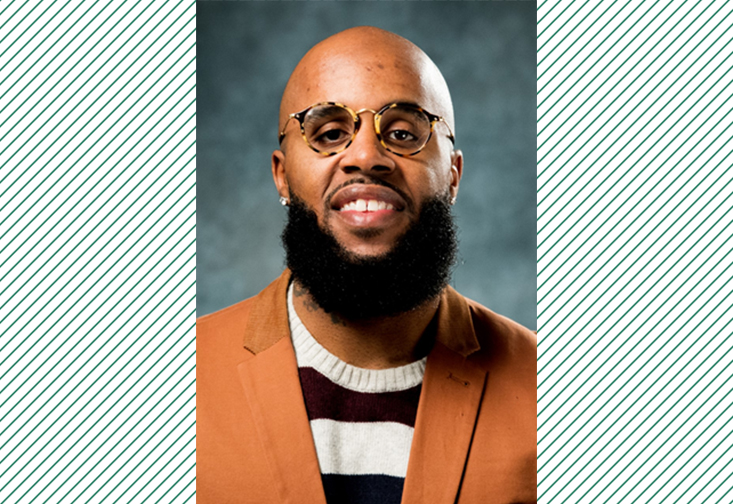Pictured above: DeWayne Anderson, new assistant program director for USF St. Petersburg’s Office of Multicultural Affairs, is determined to create a space of acceptance for marginalized students.
Courtesy of USF
By Aubrey Carr
This summer, the Office of Multicultural Affairs (OMA) welcomed a new assistant program director who is passionate about diversity and inclusion
In his new position, DeWayne Anderson is determined to make USF St. Petersburg’s campus a place of acceptance for all students– regardless of race, gender or sexuality.
As a graduate of student affairs and higher education, Anderson said it was important for students to feel safe, not only with him but with all of OMA.
“[I want to create] a space where I can come into my office, and students will be hanging out because they are comfortable at the OMA. A space where all students, regardless of their race or gender, can feel safe with me,” Anderson said in a USF press release.
He credits his alma mater’s director of multicultural affairs, Rogers Laugand, as his reason for pursuing student affairs.
“I went to a predominantly white institution, so I didn’t see a lot of people who looked like me, and I connected to [Laugand]. I got to see what diversity looked like on campus, and that’s where I learned about inclusion. It wasn’t until I started to learn more about my identity as a Black man that I started to understand what it was,” Anderson said.
Anderson said Laugand’s role as a mentor impacted more than just his career goals.
“[Laugand] was always around, always prevalent and he looked like me,” Anderson said. “He was a Black man, too. So, I looked up to him and mimicked what he did; I essentially wanted to be like him.”
His mentor’s work inspired Anderson to become a similar figure for his own students.
“I feel like it’s my job to be their Rogers Laugand,” Anderson said. “I want to be that person to support them while they are going through their journey. I get to educate them and motivate them to do different things.”
Anderson said he wishes to educate students on what the OMA can do for them.
“A lot of people think [we help] students of color, which is one group that we do help, but we also help our LGBTQIA+ students and partner with Veterans Affairs to help our veteran students get connected to resources. We focus on creating an experience for all underrepresented students to thrive, setting them up for success,” Anderson said.
Though COVID-19 placed a hold on many of the programs offered by the OMA, a return to campus fostered a revival of St. Petersburg’s student organizations.
“This is the first time many of the students are back on campus. So, we are taking things slowly by offering a virtual and in-person component [to our programs],” Anderson said. “I want to make sure all our student organizations are thriving and in a good place. I know we will get there.”
Currently, the OMA offers a variety of diverse organizations aimed at serving marginalized students and faculty.
The Black Student Association, P.R.I.D.E. Alliance and the Asian American and Pacific Islander (AAPI) Association are student-led organizations focused on underrepresented communities on-campus.
The OMA also offers multicultural educational programs and workshops at no cost to the USF community.
“We’re getting [the programs] back up and running, and these students are ready to work. I’m so excited to see that,” Anderson said.
“It lets me know that diversity and inclusion work is more important than ever here because [students] want to advocate for their identity. They want to advocate for people who look like them. So, I’m here to help them do that, whether it’s on-campus or in the St. Petersburg community.”



